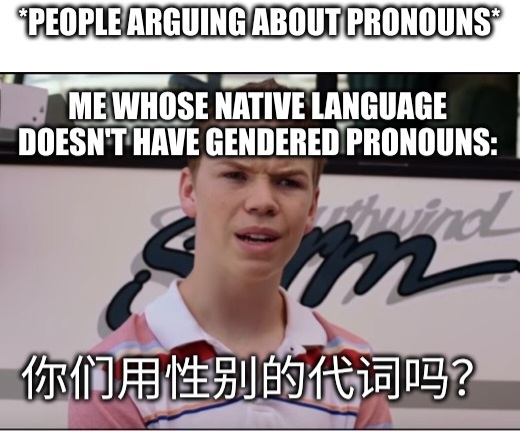this post was submitted on 30 Aug 2023
766 points (96.3% liked)
Memes
46066 readers
7 users here now
Rules:
- Be civil and nice.
- Try not to excessively repost, as a rule of thumb, wait at least 2 months to do it if you have to.
founded 5 years ago
MODERATORS
you are viewing a single comment's thread
view the rest of the comments
view the rest of the comments

Reading through the comments is making me interested in the difference in transgendered people in cultures with gendering versus ones that keep it neutral.
Like if there are more trans in neutral cultures because gendering isn't as important, and where gendering is cultural there are less due to an ingrainedness of it all?
Gender variant expression is found across all human societies (probably gender/sexual dysphoria too), but transgender identification (and third genders) seems highly culturally dependent.
Hard to know what impact language has. It's perfectly possible that in cultures without as much linguistic gendering, there's less trans identification because there's less gendered language to attach to or push away from.
I don't think there is much relation between a community using a language with no genders and its transgender population size. Take China for example. The nouns in Chinese are not gendered, and the pronouns used to be gender-neutral until about a hundred years ago when "她" (she) emerged. There are few transgender people in China, partially due to the fact that they are not officially recognized, but I don't think there would be many transgender people in China even if the government legally allowed it.